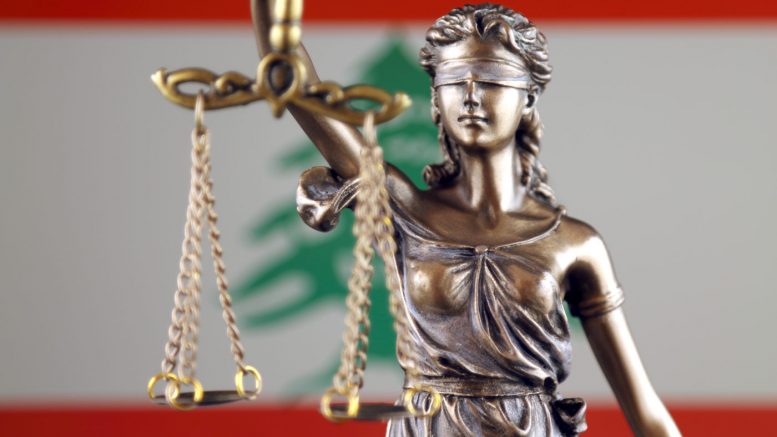May 4, 2021
The removal of Lebanese public prosecutor Ghada Aoun from financial cases she had been overseeing constitutes a further attack on the independence of an already enfeebled judiciary, the International Commission of Jurists said today.
On 15 April 2021, Lebanon’s General Prosecutor removed Ghada Aoun, Mount Lebanon Public Prosecutor, from the financial cases she had been overseeing, including high-profile corruption and illegitimate gains cases. Aoun had charged Riad Salameh, the Governor of Lebanon’s Central Bank, with dereliction of duty and breach of trust, and had charged former Prime Minister Najib Mikati with illegitimate gains. She had also been overseeing and issuing arrest warrants in other high-profile cases.
“The Lebanese judiciary has a long history of utter subordination to the ruling political class in Lebanon,” said Said Benarbia, the Director of the ICJ MENA Programme.
“Removing prosecutors and investigating judges from cases solely because they carry out their legitimate functions flies in the face of the independence of the judiciary and sends a chilling message to others who might dare challenging the authorities.”
Aoun’s ouster followed the removal of investigative judge Fadi Sawan from the 2020 Beirut port blast case. Sawan was removed on 18 February 2021 by the Court of Cassation after bringing criminal negligence charges against the acting President of the Cabinet and former ministers in relation to the devastating explosion on 4 August 2020, in which nearly 200 people died and thousands more were injured. His removal by the Court of Cassation came after two former Ministers who were facing criminal charges filed a complaint against Fadi Sawan before the General Prosecutor, requesting his removal from the case.
The Lebanese authorities, including judicial authorities, should comply with their obligations under international law and ensure that judges and prosecutors be able to exercise their functions independently, free of any influences, pressures, threats or interference from any quarter or for any reason.
In August 2020, the ICJ urged the Lebanese authorities to work with the United Nations to establish a special, independent mechanism to probe the Beirut blast in line with international law and standards with a view to establishing the facts and making recommendations for appropriate accountability measures, including criminal prosecutions.
The call was informed by the ICJ publications and findings on the independence and functioning of the judiciary in Lebanon, including recommendations to ensure that the judiciary is not subject to any form of undue influence by political actors and confessional communities, and that it is able to fulfill its responsibility to uphold the rule of law and human rights.






Be the first to comment on "Lebanon: stop removal of investigative authorities overseeing high-level corruption and criminal negligence cases"